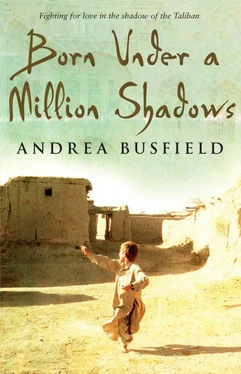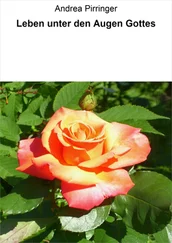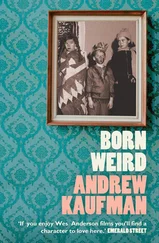“Yes,” I admitted, badly missing the cluster of disks I had to break. The boy waved as if he didn’t care and let me take the shot again, which I thought showed very good manners.
“I saw you last night,” he said as I carefully lined up my shot, “spying on my father.”
The disks clattered around the board as I hit them, and Ahmad reached for the large one to take his turn.
“I saw you across the hall,” he continued as he casually flicked a blue piece into the far right hole. “My bedroom is opposite the one you’re staying in.”
“And your dad is?”
“Haji Khalid Khan. Who else?”
I looked up, surprised. Although I knew Haji Khan had children by his dead wife, I was a little shocked to find one of them sitting opposite me because Georgie had told me they stayed with his sister.
“I thought you lived somewhere else,” I said.
“I do. I sleep at my aunt’s place usually, but the noise is a nightmare. Too many women in the house, that’s the problem. Here, your turn.”
I took the disk and managed to slide one of my whites close to a hole.
“Not bad,” Ahmad said. “Of course, you seriously need to practice.”
“I only started playing yesterday.”
“Yes, and you seriously need to practice.”
Ahmad laughed, and as he did so I saw some of Haji Khan in his face.
“Your father seemed a bit angry last night,” I mentioned, watching Ahmad steadily demolish the board in front of me.
“Ha! He was pissed all right.”
“Is it because of us?”
“Who?” Ahmad looked up from the game, genuinely puzzled.
“Me and Georgie,” I explained. “Is he angry because we turned up uninvited?”
“No, of course not.” Ahmad shook his head. “Georgie has always been welcome here. This is her home, that’s what my father says.”
“Oh.”
“No, if you must know, he’s pissed about some family business, but it’ll soon be sorted because it always is.”
About three hours after I’d finished my breakfast, and about two hours after Ahmad had disappeared back to the house full of women in one of his father’s Land Cruisers, Georgie appeared downstairs looking fed up. “Come on, Fawad, it’s time to see a man about some goats,” she said, and we grabbed our boots, jumped into another of Haji Khan’s cars, and roared out of Jalalabad.
It was a beautiful day with brilliant skies that carried none of the dust and car-fog hanging above Kabul, and an Indian love song played from a cassette. As well as me and Georgie there was a driver and a guard with a gun placed between his legs in the front seat. He didn’t belong to us, so I guessed he must belong to Haji Khan.
Driving out of the city toward Pakistan, we passed a large portrait of the martyr Haji Abdul Qadir, the former vice president who was murdered eight months after the Taliban fled. Jalalabad had been his home, and I thought the people must have really loved him to place his picture there.
Climbing out of the city, we drove higher, through a mud village and on to a large flat space of brown before dipping back into green, passing rows of olives trees, and into a tunnel of giant trees that seemed to be leaning over the road in an effort to hug their friends on the other side. As we came to another village, we turned right off the main road, through a small bazaar and onto a rough track taking us to Shinwar. This was where we would find a man and his goats, apparently.
As we drove farther into the countryside, we passed scores and scores of old poppy fields. I’d recently seen photographs of them printed in one of the Kabul newspapers Pir Hederi had me read to him. The poppies shone bright and pretty from the pages, and I remember thinking at the time that if they tasted as good as they looked it was no wonder people became addicted.
As we passed an old man with a donkey laden with twigs, Georgie rolled down her window, and after saying her hellos and asking after his family, she asked where we could find a man called Baba Gul Rahman. The old man lifted his hand and revealed that we could find him at the hut over the next field under the hill. “If he still has a hut,” he grumbled. Georgie said thank you, looked at me, and shrugged, and then we all set off toward the hill over the next field to see if Baba Gul still had his hut.
When we arrived at the foot of the hill we were relieved to find Baba Gul’s hut was still standing, but annoyingly for us there was no Baba Gul in it. One of the children we assumed to be his went running off to the next village in search of him.
Sitting on the grass, watching a herd of goats eating and playing, we passed the time drinking tea given to us by a girl who was about my age or a little older. She was Baba Gul’s oldest daughter, revealed Georgie, who had met her before. Her name was Mulallah, and she had the prettiest green eyes I’d ever seen.
“How are you doing?” Georgie asked as she came to sit with us. “Your goats look well.”
“Yes, the goats are good,” she replied, roughly wiping the hair from her face and frowning.
“Something wrong, Mulallah?”
The girl shrugged. “This is Afghanistan, Khanum Georgie. Sometimes, life is not so easy. You know this better than us.”
Georgie nodded, but I saw the questions sitting in her eyes.
As I didn’t know what to say, I kept my mouth shut.
“My father’s playing at the cards again,” the girl finally explained as we sat there in silence. “And when he loses we pay for it. It must be Allah’s punishment for the sin he’s committing. I mean, just look where we’re living now.” The girl waved her hands at the hut, which was more of a tent really, a flimsy house of wood covered in plastic sheeting bearing the initials of something called UNICEF.
As the girl spoke, her mother approached. She was a tiny woman with a face that could have been carved out of the mountains behind us. She greeted Georgie affectionately but didn’t hang around. After nodding her head at her daughter, they both left to round up the goats, but as she turned away I caught the look on her face, and it was one of deep shame. I understood then that the lifelong humiliation she had suffered at the hands of her husband had been the cause of the ugly lines cut into her skin. And now that the girl was speaking of the family’s dishonor to virtual strangers, there wasn’t any use in pretending life was anything different.
Sometimes, when you possess nothing at all, the only thing you can do is hang on to your dignity. But even simple words can take that away from you if you’re not careful.
“Was Haji Khan happy to see you?” I asked Georgie as we continued to await Baba Gul’s arrival.
“He was tired, but yes, I think so,” she answered, fiddling with the frayed ends of her jeans as we sat on the grass.
“You think so?”
“Yes.”
“You don’t know ?”
“Well…” Georgie breathed in deeply and then out again. “No, I don’t really.”
I shook my head in disbelief. As far as lovers’ reunions went, this didn’t really sound up there with Laila and Majnun.
Theirs was a story Jamilla had told me one day in Chicken Street after her mother had told it to her one night to take the sting out of her father’s fists. In the legend, Laila was a beautiful girl born to a rich family. Of course, when she grew up her family wanted her to marry a rich man, but instead she fell in love with Majnun, a very poor man. When everyone found out, there was hell to pay, and Laila and Majnun were banned from seeing each other ever again. Laila’s parents then forced her to marry a man of great wealth, and he took her away from the area. But even though she had a beautiful home, her love for Majnun stayed strong, and one day when she couldn’t stand being apart from him any longer, she killed herself. When Majnun heard of Laila’s death he went mad-crazy with grief, and in the end he died on her grave.
Читать дальше












